The U.S. has been one of the largest global donors for family planning and reproductive health.
But sweeping budget cuts and policy changes are now creating deep gaps in access to essential care, not only for Americanwomen but also for millions of women and girls around the world.
At home, funding reductions to Medicaid and the Supplemental Nutrition Assistance Program (SNAP) are squeezing low-income families who already face barriers to health care.
- A $9.7 million stockpile of contraceptives meant for low-income countries is set for destruction in Europe despite high demand.
- The State Department rejected offers from humanitarian groups to distribute the contraceptives.
- Funding cuts have shuttered clinics treating HIV and providing contraception in vulnerable regions, including Zambia and South Africa.
- Medicaid and SNAP cuts in the U.S. have squeezed low-income women’s access to contraception and prenatal care.
Millions worth of contraceptives for women in low-income countries are stuck in a warehouse in Belgium
Image credits: Google Maps
Abroad, the consequences are far more stark: a $9.7 million stockpile of contraceptives, meant for women in low-income countries, is set to be destroyed in Europe instead of reaching the clinics where it is most needed.
In a Kuehne + Nagel warehouse in Geel, Belgium, thousands of boxes of birth control pills, IUDs, and contraceptive implants sit untouched. These supplies, purchased with U.S. taxpayer dollars, were intended for women and girls in some of the world’s most vulnerable regions, including crisis zones in sub-Saharan Africa.
Instead, the State Department has confirmed that the products will be shipped to France to be incinerated—at an additional cost of $167,000 to U.S. taxpayers. There has been no confirmation of this by France.
The French health ministry said in a statement: “We are following this situation closely and we support the will of the Belgian authorities to find a solution to avoid the destruction of contraceptives.”
Image credits: Stephen B. Morton/Getty Images
Since many of these have active hormonal ingredients, the contraceptives would have to be incinerated twice to be destroyed.
“These are essential, lifesaving supplies that would have supported reproductive autonomy and prevented unsafe abortions and maternal deaths — being wasted and destroyed,” Chelsea Polis of the Guttmacher Institute told NPR.
She estimates the contraceptives could have prevented more than 650,000 unintended pregnancies for up to a year, or for 950,000 people for three to 10 years, depending on the method.
Several humanitarian organizations, including MSI Reproductive Choices and the United Nations Population Fund (UNFPA), offered to buy the stockpile, repurpose it, and distribute it at their own expense. But the U.S. government rejected these offers.
Image credits: Ezra Acayan/Getty Images
“Destroying valuable medical items that were already paid for by U.S. taxpayers does nothing to combat waste or improve efficiency,” said Avril Benoît, CEO of the U.S. offices of Doctors Without Borders.
“This administration is willing to burn birth control and let food supplies rot, risking people’s health and lives to push a political agenda.”
In a statement, the State Department referred to the contraceptives as “abortifacient birth control commodities,” a label that reproductive health experts dispute.
The contraceptives are set to be destroyed in France, a move the French government is lobbying to prevent
Image credits: Beata Zawrzel/Getty Images
That is because the products constitute birth control pills and implantable birth control products that prevent a pregnancy before fertilization has occurred in the first place.
Democratic Senator Jeanne Shaheen criticized the administration’s reasoning, saying these “products have nothing to do with abortion,” she told the BBC, urging the State Department to reverse the plan.
Belgian officials and French lawmakers are also lobbying to prevent the destruction.
“We refuse to let France become the trash bin for American ultraconservatives,” Marine Tondelier, the leader of France’s Green Party, wrote on X.
🟣 Lettre ouverte à Emmanuel Macron
10 millions de contraceptifs américains valables jusque 2031 doivent être détruits en France de manière imminente.
Ces contraceptifs du programme « USAID » sont actuellement stockés en Belgique et destinés aux pays à faible revenu.
Ils font… pic.twitter.com/uTXpzW4M5R
— Marine Tondelier (@marinetondelier) July 26, 2025
The contraceptive stockpile is only one piece of a much larger puzzle.
In February, UNFPA—which partners with 150 countries to provide maternal health services, protection from violence, rape treatment, and lifesaving care—confirmed that the U.S. had terminated nearly all of its vital grants. The cuts amount to $377 million in lost funding.
“These termination notices include grants for which we had previously received humanitarian waivers, as they were considered lifesaving interventions for the world’s most vulnerable women and girls,” UNFPA said.
“This decision will have devastating impacts on women and girls.”
The affected programs served communities in Afghanistan, Sudan, Gaza, the Democratic Republic of the Congo, and Ukraine, among others.
For many clinics, the funding cuts mean closing their doors.
In Zambia, a PEPFAR-supported clinic that provided HIV treatment and contraception shut down earlier this year.
Programs affected by budget cuts help women in Afghanistan, Sudan, Gaza, DRC, and Ukraine, among others
Image credits: U.S. Embassy in Zambia
But it is also important to note that U.S. aid is voluntary and that taxpayers are not obligated to fund programs abroad indefinitely.
Through history, presidents have shifted priorities for how those dollars are spent, and there is no law requiring the U.S. government to fund these programs. But when it does provide funding, there is a moral expectation to ensure that those funds actually help people rather than being wasted.
The budget cuts are also affecting thousands of HIV-positive patients across South Africa who were getting treatment and medication from USAID-funded clinics. Most of the facilities have closed after U.S. President Donald Trump cut foreign aid.
Image credits: Ezra Acayan/Getty Images
The impact of budget cuts is also felt within the U.S.
The Department of Government Efficiency (DOGE) has eliminated at least $3 billion in grants supporting women’s health, education, and economic advancement, according to the Center for American Progress.
These cuts canceled studies on uterine fibroid tumors, which affect 70-80% of women by the time they reach age 50. They will also cut funding for research on pregnancy outcomes, including studies on hypertension and high blood pressure during pregnancy.
Many of these studies focused heavily on black women, whose maternal mortality rate is 3.5 times higher due to stress during pregnancy than that of white, non-Hispanic women.
DOGE cuts have stopped vital studies on women’s health and reproductive functioning
Image credits: Chau Doan/Getty Images
The cuts also derailed research into Alzheimer’s, autoimmune disorders, and mental health conditions that disproportionately affect women.
Social safety net programs, including housing assistance for domestic violence survivors and workforce training for women, have also been slashed.
“By cutting programs focused on women’s health, safety, and workforce participation, DOGE is not only rolling back years—if not decades—of progress,” Kierra B. Jones writes for the Center for American Progress. “It’s reinforcing the same inequities many of these programs were designed to fix.”
Image credits: Tasos Katopodis/Getty Images
A Senate amendment to Trump’s Big Beautiful Bill Act aims to significantly restrict access to reproductive health care for low-income women.
One provision approved by the Senate parliamentarian would block Planned Parenthood and the Children’s Health Insurance Program (CHIP) from receiving Medicaid reimbursements for non-abortion care.
This will disproportionately impact adult women, who make up 52% of the total Medicaid population.
Image credits: Suzanne Kreite/Getty Images
This move effectively cuts off a major source of funding for clinics that provide contraception, cancer screenings, and prenatal care, disproportionately affecting low-income women who rely on Medicaid for basic reproductive health services.
Medicaid covers more than 40% of all births nationwide, and CHIP helps 7 million children and several hundred thousand pregnant women.
The administration also slashed public health programs within the Centers for Disease Control and Prevention (CDC) and eliminated about 2,400 jobs—460 of which were later reinstated.
The majority of CDC employees in the Division of Reproductive Health, which promotes reproductive and maternal care, have been terminated.
In Congress, two Democratic senators, Jeanne Shaheen and Brian Schatz, have introduced the Saving Lives and Taxpayer Dollars Act, which would prohibit the destruction of foreign assistance supplies unless all efforts to sell or donate them have been exhausted.
Medicaid covers more than 40% of births in the U.S.
Image credits: Tom Williams/Getty Images
Intentionally destroying these supplies is “a total waste of taxpayer dollars and is needlessly costing lives around the world,” said Schatz. “Our bill requires the administration to follow common-sense and distribute foreign assistance commodities before they expire.”
Meanwhile, international agencies are scrambling to fill the gap left by the U.S. aid withdrawal. But replacing hundreds of millions in lost funding is no small task.
Back in Geel, the contraceptives remain in storage—at least for now. Advocates are piling pressure on both sides of the Atlantic to prevent this destruction from happening.
The fight is not just about pills in a warehouse, but whether women and girls in the most desperate situations will have control over their health.


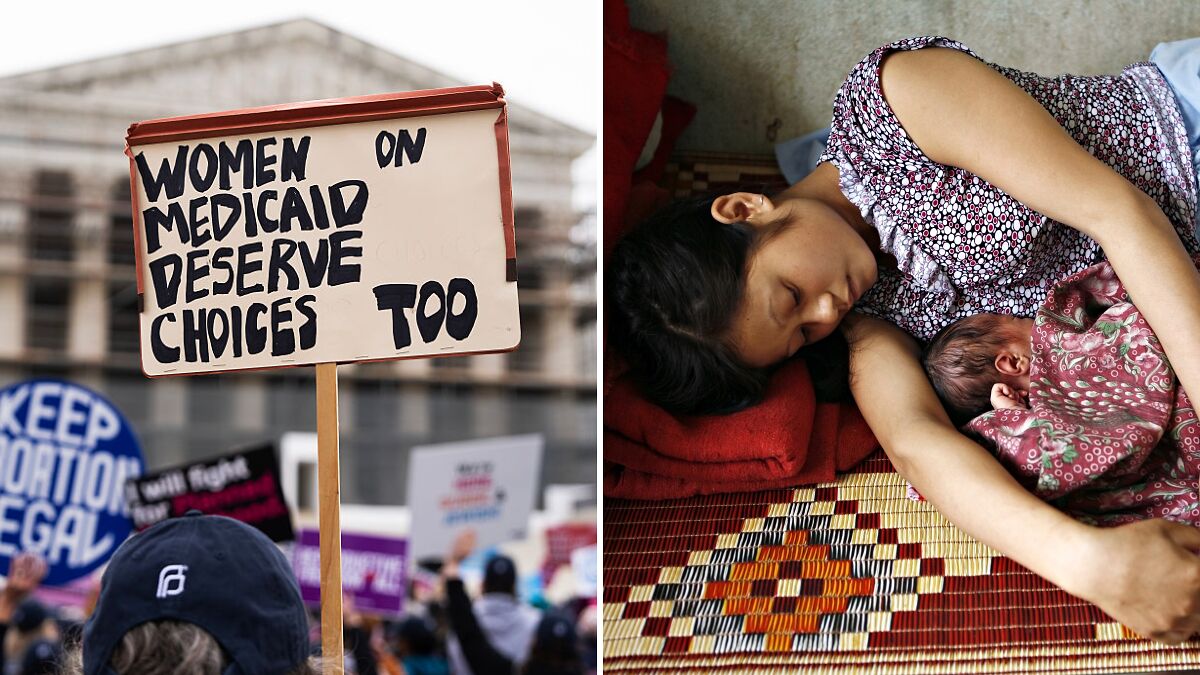




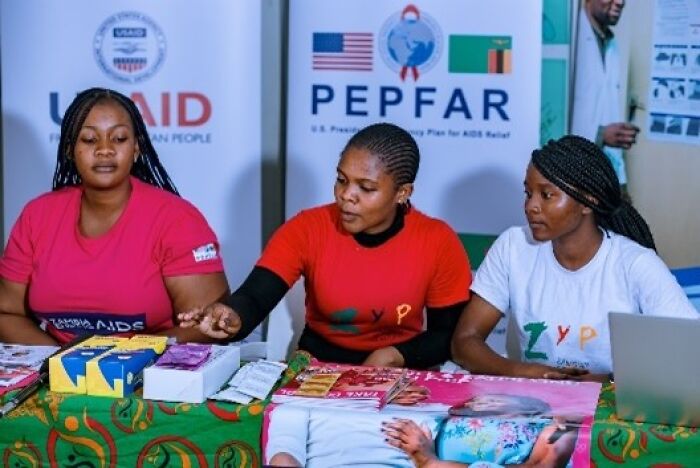

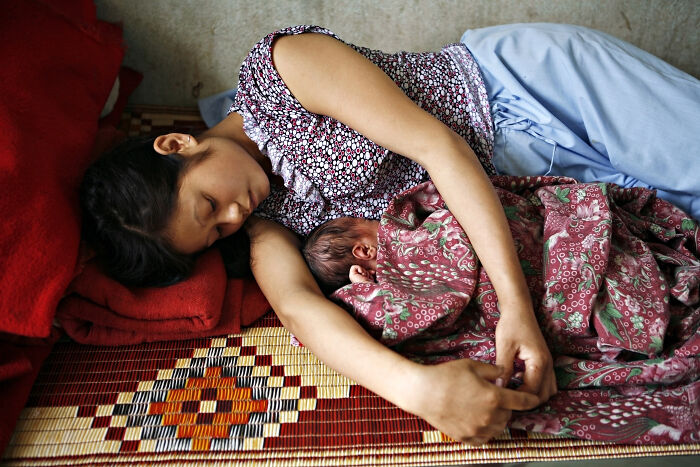
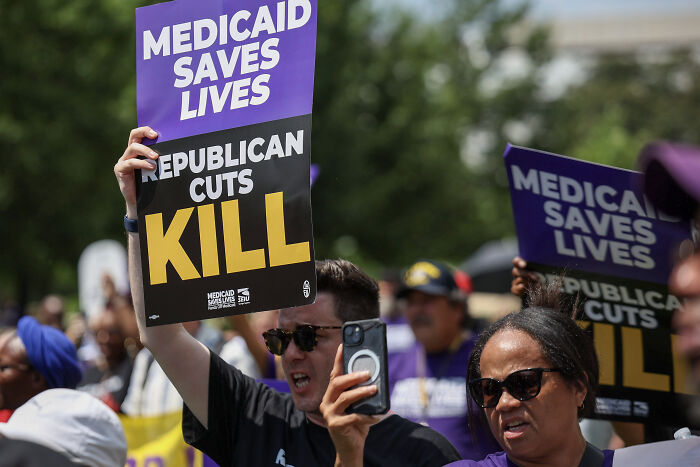
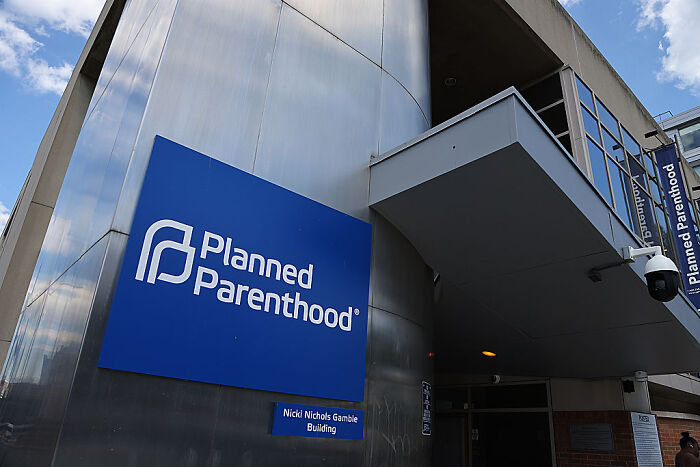
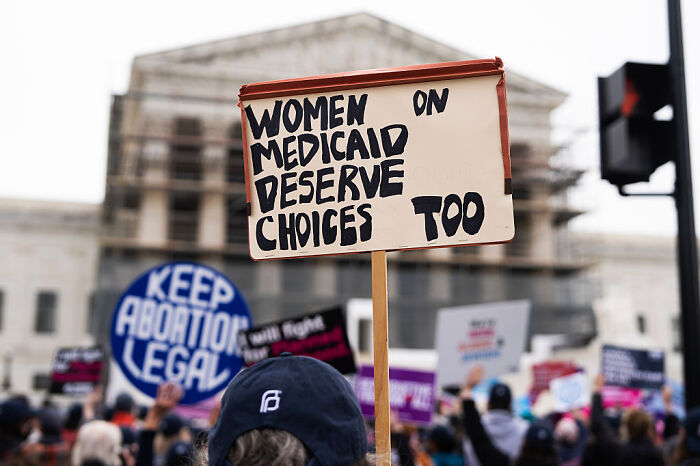



18
0